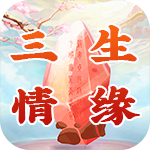1. 我對中國人失望透頂了用日語怎麼說
私はあなたが好きです。
Watashi wa a na ta ga su ki de su.
語法上,“私(我)”是主語,“好き(喜歡)”是謂語,“あなた(你)”是賓語,“が……です”是介詞,沒有實際意義。日語的謂語放在后面,這是日語的一大特點。
以上那句是最詳細的,其中比較簡單,口語化的有:
大好き(sa i su ki):最喜歡你。《魔卡少女櫻劇場版--被封印的卡片》里面小櫻對小狼表白就是說這句話。
好きだ(su ki da):“好きだ”就是形容動詞“喜歡”,直接說這個,也可以表示“我”喜歡“你”,畢竟日本人聽得懂。
あなたが好き(a na ta ga su ki):省略主語“我”,但是其實也知道是“我”喜歡你啦!
至于那個什麼あいしている
(Japanese(日本) - Aishiteru
發音近似:愛惜特魯 )
充其量只能用作句子而不適合當作表白。比如“私はあなたを愛している”直譯就是“我愛著你”,一般是書面語。
2. 求形容人失望的句子 要快
得不到那份工作,叫人失望極了。
Not getting the job was a terrible disappointment.
十字寶貝這個時候一定失望極了。
Darling strawberry that time would certainly extremely disappointed.
得不到那份工作, 叫人失望極了。
Not getting the job was a terrible disappointment.
這個可憐的人失望極了,就上吊自殺了。
The poor man was so disappointed that he hanged himself.
瓊斯先生失望極了。
Mr. Jones' frustration was overwhelming.
白宮在描述這個數字時稱其令人“失望極了”。
The White House described the figures as "disappointing".
當我的入學申請被哈佛大學拒絕時,我失望極了。
It was a big letdown when I was not accepted by Harvard university.
我什麼工作都找過了。我失望極了,我甚至想……
I applied for every single job in the world. I was so desperate, I even applied to …
布萊克真的跌入了谷底,老板吼了一頓,他真的感到很沮喪和失落心煩。
Blake was really down in the dumps after his boss shouted at him, he really felt depressed and frustrated.
在你跌入人生谷底的時候,你身旁所有的人都告訴你:要堅強,而且要快樂。
When you had fallen to the bottom of your life, every people around you would tell you: Be hard-bitten and be happy!


















